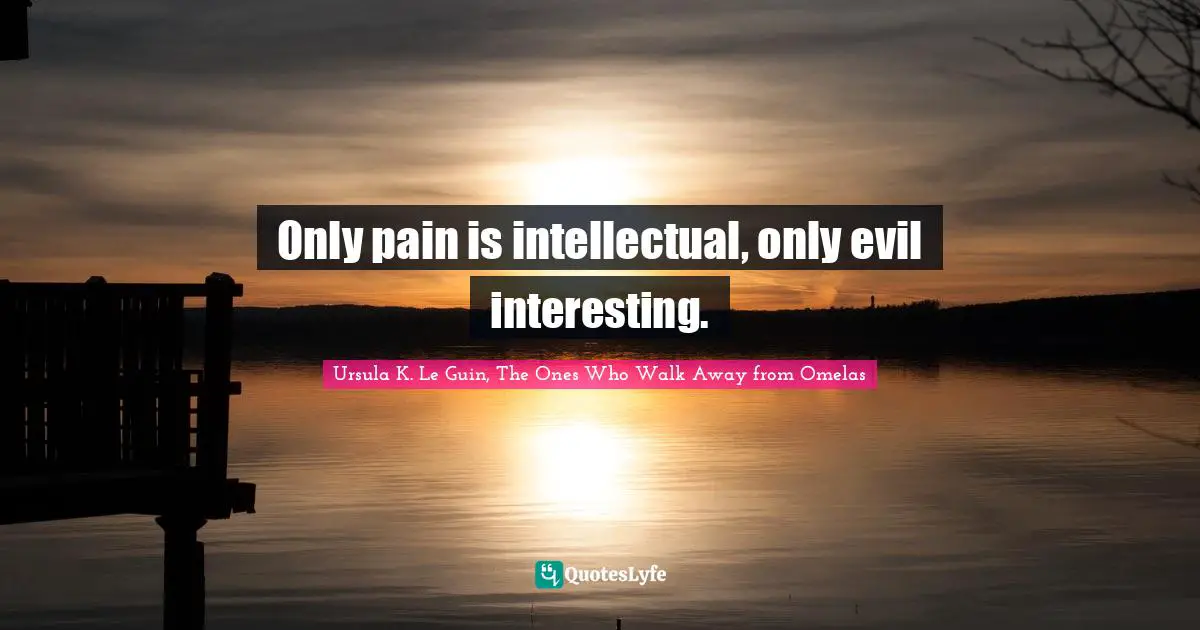

(A number of critics have seen Christ-like symbolism in the description of the child). This society is founded on the misery and degradation of one child, imprisoned in a dirty, dark cellar room furnished with a bucket and two mops, kept from human contact and sunlight. (Is Omelas the model society Swedish socialists thought they were building?)īut this fairy tale has a flaw.

Le Guin introduces us to an exotic, mystical city, Omelas, “bright-towered by the sea,” whose fortunate residents (“the people of Omelas are happy people”) enjoy a Utopian existence, with plentiful creature comforts (drugs, sex, and music–if not rock-and-roll), magnificent public buildings, ideal weather, and without “monarchy and slavery… the stock exchange, the advertisement, the secret police, and the bomb.” And, as the narrator hastens to tell us, without guilt.

Le Guin’s short story, “The Ones Who Walk Away from Omelas,” is-she has written-based on the “psychomyth” of the scapegoat she says she was inspired by William James’ statement that “one could not accept a happiness shared with millions if the condition of that happiness were the suffering of one lonely soul.” The story, which won the Hugo Award, has been included in a number of literary short story anthologies-even though the prolific Le Guin is best known for her science fiction and fantasy-and it surfaces on the reading list in some English and Philosophy classes. We respond instinctively to certain symbolic tales, and find literary themes that address elemental human concerns to be compelling. The power of storytelling and myth is real, whether or not Jung’s theory about archetypes is correct. The Hero’s Journey, what Joseph Campbell called the “monomyth,” borrowing from James Joyce, has always seemed right to me in its depiction of an underlying collective memory that storytellers tap into (Christopher Vogler’s The Writer’s Journey: Mythic Structure For Writers admirably decodes literary myth-making with its incisive analysis of both classic literature and more popular fiction). Those stories with mythic qualities have even more power, for they tap into our collective unconscious, those memories that seem hard-coded into us. We have been drawn to stories from the time our ancestors huddled around the fire and listened and learned and were entertained and enthralled by the tales of others.


 0 kommentar(er)
0 kommentar(er)
